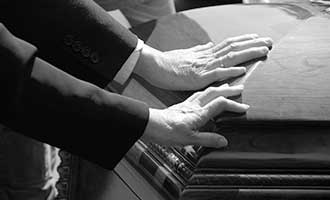
Although the legislation brought together both by the states and the federal government was thought to be a “win-win” for the employees, many challenges have been brought by both employers and their workers. These decisions helped form a better understanding of what is legal and just when a workers’ compensation lawyer is needed.
How Did The Court Rule Before The Enactment of Workers’ Compensation Laws?
 Many workers would be left without a way to make money from their jobs once they were injured on the job. The courts became the place workers felt they could gain some working rights to help compensate for their losses. Unfortunately, at first, many courts were reluctant to change the status quo of the workplace. For example, in 1842, the Massachusetts Supreme Court found that under the “fellow servant” rule, employers would not be held responsible to pay compensation for any employee who was injured due to the actions of another employee. Farnwell v. The Boston and Worcester Railroad Company, 45 Mass. 49 (1842).
Many workers would be left without a way to make money from their jobs once they were injured on the job. The courts became the place workers felt they could gain some working rights to help compensate for their losses. Unfortunately, at first, many courts were reluctant to change the status quo of the workplace. For example, in 1842, the Massachusetts Supreme Court found that under the “fellow servant” rule, employers would not be held responsible to pay compensation for any employee who was injured due to the actions of another employee. Farnwell v. The Boston and Worcester Railroad Company, 45 Mass. 49 (1842).
How Has The Court Changed Since The Enactment of Workers’ Compensation Laws?
Since the enactment of the Workers’ Compensation Act, other subsections of workers’ compensation were formed with the help of the following court cases:
-
 Injured during the course of employment: An injury must arise during the course of employment to be covered by workers’ compensation. In general, activities that happen when one is working are covered; those that occur when one is not working are not covered.A summer associate at a law firm is hurt while she is playing softball for the firm’s team. The firm organized the team and encouraged participation in order to build camaraderie. Furthermore, without the participation of three females, the team would be forced to forfeit the game. Because of the encouragement, involvement, and benefit to the employer, the activity is covered by workers’ compensation. Ezzy v. Workers’ Compensation Appeals Board, 146 Cal. App. 3d 257 (Cal. App. 1983).
Injured during the course of employment: An injury must arise during the course of employment to be covered by workers’ compensation. In general, activities that happen when one is working are covered; those that occur when one is not working are not covered.A summer associate at a law firm is hurt while she is playing softball for the firm’s team. The firm organized the team and encouraged participation in order to build camaraderie. Furthermore, without the participation of three females, the team would be forced to forfeit the game. Because of the encouragement, involvement, and benefit to the employer, the activity is covered by workers’ compensation. Ezzy v. Workers’ Compensation Appeals Board, 146 Cal. App. 3d 257 (Cal. App. 1983).
-
 Constitutionality of Workers’ Compensation: The constitutionality of such laws has been the topic of several workers’ compensation cases. These can stem from policing powers of the states, to the amounts of money that can be received by employees.After an employee was killed from an injury sustained in the course of his employment, the Court ultimately rules that the law did not violate the 14th Amendment, and that compensation for an employee should be quickly put together, as it is in the common good of the public to be justly compensated for “life or limb.” New York Central R.R. Co. v. White, 243 U.S. 188 (1917).
Constitutionality of Workers’ Compensation: The constitutionality of such laws has been the topic of several workers’ compensation cases. These can stem from policing powers of the states, to the amounts of money that can be received by employees.After an employee was killed from an injury sustained in the course of his employment, the Court ultimately rules that the law did not violate the 14th Amendment, and that compensation for an employee should be quickly put together, as it is in the common good of the public to be justly compensated for “life or limb.” New York Central R.R. Co. v. White, 243 U.S. 188 (1917).
 Injuries Due to “Acts of God”: Acts of God provisions, deal with happenings outside of human control, such as flash floods, earthquakes, or other natural disasters. Before the 1970s, these provisions helped to remove or limit responsibility on the part of the employer for injuries or other losses following such events.After an employee was injured during a tornado at his place of employment, his employer tried to claim they were not responsible because the tornado was “an act of god.” The court ruled that it is no longer necessary to establish a relationship between employment and an injury to establish the ability to be compensated under the Worker’s Compensation Act. It is no longer an employer’s defense that the injury was caused by an “Act of God.” Whetro v. Awkerman, 383 Mich. 235 (1970).
Injuries Due to “Acts of God”: Acts of God provisions, deal with happenings outside of human control, such as flash floods, earthquakes, or other natural disasters. Before the 1970s, these provisions helped to remove or limit responsibility on the part of the employer for injuries or other losses following such events.After an employee was injured during a tornado at his place of employment, his employer tried to claim they were not responsible because the tornado was “an act of god.” The court ruled that it is no longer necessary to establish a relationship between employment and an injury to establish the ability to be compensated under the Worker’s Compensation Act. It is no longer an employer’s defense that the injury was caused by an “Act of God.” Whetro v. Awkerman, 383 Mich. 235 (1970).
Contact an Experienced Massachusetts Workers’ Compensation Lawyer
 If you or someone you know has been injured while at work, our firm works with experienced Workers’ Compensation Attorneys here in Massachusetts. The law firm of d’Oliveira & Associates, p.c. is located at 120 Stafford St. Unit 5 Worcester, Ma. 01603. You may be entitled to collect for workers’ compensation benefits for lost wages, medical bills and possibly a lump sum settlement, among other benefits. No fees are received unless you win your case. For a free (no obligation) case evaluation, call us toll free at 1-800-992-6878. You may also fill out our contact form online.
If you or someone you know has been injured while at work, our firm works with experienced Workers’ Compensation Attorneys here in Massachusetts. The law firm of d’Oliveira & Associates, p.c. is located at 120 Stafford St. Unit 5 Worcester, Ma. 01603. You may be entitled to collect for workers’ compensation benefits for lost wages, medical bills and possibly a lump sum settlement, among other benefits. No fees are received unless you win your case. For a free (no obligation) case evaluation, call us toll free at 1-800-992-6878. You may also fill out our contact form online.



Social Security Disability
RI Social Security Disability
MA Social Security Disability